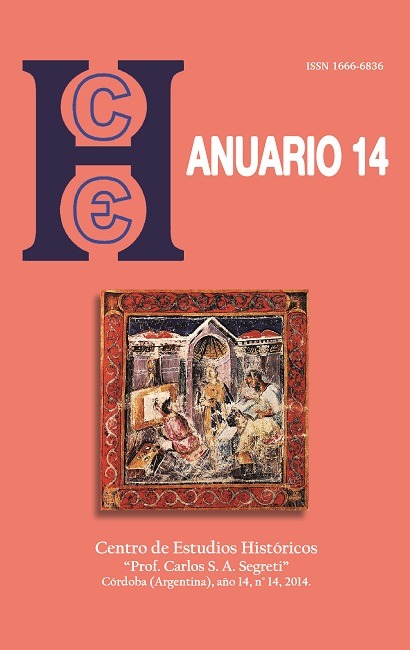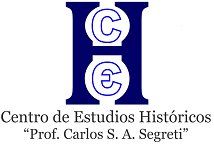Authority and tradition: creative gods and multiple aspects of the human being in the Gnostic writings
DOI:
https://doi.org/10.52885/2683-9164.v0.n14.22137Keywords:
authority, religion, Gnosticism, platonismAbstract
Religious authority bases its political power in the configuration of a canon of recognized texts, established through certain fundamental factors, which include the specific exegetical reading of writings considered as sacred. In Christianity, this interpretation arise in parallel with the setting of that canon. The Gnostic authors grant authority to Genesis, and various texts issued from the Platonic philosophy. Their exegesis bring a different conception about the origin of man, defining a notion of authority that influences the social relations within the cosmos. Thus, the Timaeus and some verses of Genesis, confirm the Gnostic claims of multiple participants in the creation of man, while the philosophical tradition argues for the differences among the human components. The reinterpretation of these sources explains the tension that tears human beings among its intangible components and their bodily impulses. Hence, human nature possesses attributes granted by gods belonging to different hierarchies that divide the loyalties of man.
Downloads
References
ALEXANDRE Monique, Le Commencement du livre Genèse I-V. La version grecque de la Septante et sa réception, Paris, Bauchesne, 1988.
BARC Bernard, (trad.), “Livre des secrets de Jean NH II, 1; III, 1: IV, 1; BG 2”, MAHÉ Jean-Pierre y POIRER Paul-Hubert (dir.), Écrits Gnostiques, Paris, Gallimard, 2007.
GARCÍA BAZÁN (trad.), “Tratado Tripartito NHC I 5”, PIÑERO Antonio (ed.), Textos Gnósticos. Biblioteca de Nag Hammadi I: Tratados filosóficos y cosmológicos, Madrid, Trotta, 2000.
BERMEJO RUBIO Fernando (trad.), “Exposición valentiniana”, PIÑERO A. (ed.), Textos Gnósticos. Biblioteca de Nag Hammadi III: apocalipsis y otros escritos, Madrid, Trotta, 2000.
CROUZEL Henri y SIMONETTI Manlio (trad.), Origène, Traité des Principes, (colección Sources Chretiennes 252), Paris, Cerf, 1978.
CROUZEL Henry y SIMONETTI Manlio (trad.), Origène, Traité des Principes, (colección Sources Chretiennes 269), Paris, Cerf, 1980.
DILLON John, The Middle Platonists cit., p. 248. Ver también lo afirmado por Édouard DES PLACES (trad.), Numenius, Fragments, Paris, Les Belles-Lettres, 1973.
GARCÍA BAZÁN Francisco (trad.), Numenio de Apamea, Fragmentos y testimonios, Madrid, Gredos, 1991.
LIDDELL Henry y SCOTT Robert, (comp.), A Greek-English Lexicon, Oxford, Clarendon Press, 1996.
MAHÉ Jean-Pierre y POIRER Paul-Hubert (dir.), Écrits Gnostiques, Paris, Gallimard, 2007.
MAHÉ Jean-Pierre y POIRER Paul-Hubert, “Introduction”, Jean-Pierre MAHÉ y Paul-Hubert POIRER (dir.), Écrits Gnostiques, Paris, Gallimard, 2007.
MONTSERRAT TORRENTS José (trad.), “La Interpretación del Conocimiento (NHC XI, 1)”, A. Piñero, editor, Textos Gnósticos. Biblioteca de Nag Hammadi II: evangelios, hechos, cartas, Madrid, Trotta, 2000.
OPSOMER Jan, “Demiurges in Early Imperial Platonism”, Rupert Hirsch-Luipold (ed.), Gott und die Gotter bei Plutarch. Gotterbilder - Gottesbilder – Weltbilder, Berlin -New York, Walter de Gruyter, 2005.
PAINCHAUD Louis y Einar Thomassen (trad.), “Traité Tripartite NH I, 5”, Jean-Pierre MAHÉ y Paul-Hubert POIRER (dir.), Écrits Gnostiques, Paris, Gallimard, 2007.
PAICHAUD Louis y THOMASSEN Einar, “Interprétation de la gnose (NH XI, 1)”, MAHÉ Jean-Pierre y POIRER Paul-Hubert (dir.), Écrits Gnostiques, Paris, Gallimard, 2007.
PÉTREMENT Simon, Le Dieu séparé. Les origines du gnosticisme, Paris, Cerf, 1984.
SEVRIN Jean-Marie (trad.), “Évangile selon Thomas (NH II, 2)”, MAHÉ Jean-Pierre y POIRER Paul-Hubert (dir.), Écrits Gnostiques, Paris, Gallimard, 2007.
TARDIEU Michel (trad.), Codex de Berlin. Écrits Gnostiques, (Sources Gnostiques et Manichéennes), Paris, Cerf, 1984.
TARDIEU Michel, Les gnostiques dans La Vie de Plotin. Porphyre. La Vie de Plotin II, Paris, Vrin, 1992.
TARDIEU Michel, Recherches sur la formation de l’apocalypse de Zostrien et les sources de Marius Victorinus, Bures-sur-Yvette, Groupe pour l’étude de la civilisation du Moyen-Orient, 1996.
THOMASSEN Einar, The Spiritual Seed. The Church of the “Valentinians”, (NHMS 60), Leiden-Boston, Brill, 2006.
WHITTAKER John (ed.) y LOUIS Pierre (trad.), Alcinoos, Didaskalikos. Enseignements des doctrines de Platon, Paris, Les Belles-Lettres, 1990, pp. XIII-XVII.Ver también John DILLON, The Middle Platonists. A Study of Platonism 80 B.C. to A. D. 220, London, Duckworth, 1977.
Downloads
Published
Issue
Section
License
Aquellos autores/as que tengan publicaciones con esta revista, aceptan los términos siguientes:
- Los autores/as conservarán sus derechos de autor y garantizarán a la revista el derecho de primera publicación de su obra, el cuál estará simultáneamente sujeto a una Licencia de reconocimiento de Creative Commons. Se puede compartir, copiar, distribuir, ejecutar y comunicar públicamente la obra, siempre que: a) se cite la autoría y la fuente original de su publicación (revista, editorial y URL de la obra); b) no se use para fines comerciales; c) no se altere, transforme o genere una obra derivada a partir de esta obra.
- Los autores/as podrán adoptar otros acuerdos de licencia no exclusiva de distribución de la versión de la obra publicada (p. ej.: depositarla en un archivo telemático institucional o publicarla en un volumen monográfico) siempre que se indique la publicación inicial en esta revista.
- Se permite y recomienda a los autores/as difundir su obra a través de Internet (p. ej.: en archivos telemáticos institucionales o en su página web) después del proceso de publicación, lo cual puede producir intercambios interesantes y aumentar las citas de la obra publicada. (Véase El efecto del acceso abierto).









